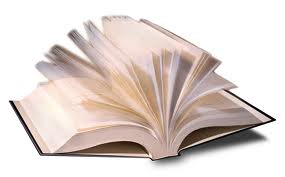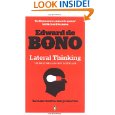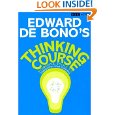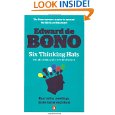Fourth Revolution Creativity related resources
What is creativity?
Creativity is a skill. It can be learned. It is the ability to regularly and consistently alter one's normal perception of the world to create a new way to look at it.
There are some conditions for creativity: a non-threatening environment so that one's capabilities can be focused on the act of creating. And of course, it is only worth when creativity leads to an action, the act of creating something that can be exchanged with other people.
Challenge your creativity, here, right now
Ready for random stimulation?
What is the issue that you are most concerned about today?
 Pick up your closest dictionary and pick up a number between 1 and the last page number of the dictionary. Then pick up a number 'n' from 1 to 40.
Pick up your closest dictionary and pick up a number between 1 and the last page number of the dictionary. Then pick up a number 'n' from 1 to 40.
Open the dictionary at the page number you decided, and look at the 'n'th word on the page. If it not a noun, pickup the next noun.
Then try to associate this randomly selected noun to your concern, and let your mind wander. You might come up with unforeseen, creative solutions.
Don't have a dictionary at hand? Never mind, log into wikipedia, and click on the 'random article' in the left hand sidebar. Then try to associate this article with your concern !
Random stimulation is just one example of creativity tools, probably the simplest one. Practice it regularly, for example once a day. Sometimes it won't work, sometimes you'll be grateful about the incredible insights. And the more you exercise those tools, the more insights you'll get!
Creativity resources
A master of creativity is undoubtedly Edward de Bono. He has written many books, here are some of the most useful and synthetic.
 The basic reference book is 'Lateral thinking' in which Edward de Bono exposes how patterns form in one's mind and how creativity is the capability to switch patterns.
The basic reference book is 'Lateral thinking' in which Edward de Bono exposes how patterns form in one's mind and how creativity is the capability to switch patterns.
While the book was first published in the 1960's it was remarkably advanced in terms of understanding brain's structure and operation.
 The next reference is Edward de Bono's 'Thinking course'. While the material is a bit redundant with the 'Lateral Thinking' book, the book offers a number of practical tools that can be used and practiced by anybody to enhance one's thinking and creative capabilities.
The next reference is Edward de Bono's 'Thinking course'. While the material is a bit redundant with the 'Lateral Thinking' book, the book offers a number of practical tools that can be used and practiced by anybody to enhance one's thinking and creative capabilities.
 The final reference here (but there are many other books by Edward de Bono) is his famous 6 thinking hats method. It is a method which is a bit complicated and needs a little bit of practice, but is extremely powerful. The idea is to request the successive contributions of our different intelligences in an order which depends on the problem to be solved.
The final reference here (but there are many other books by Edward de Bono) is his famous 6 thinking hats method. It is a method which is a bit complicated and needs a little bit of practice, but is extremely powerful. The idea is to request the successive contributions of our different intelligences in an order which depends on the problem to be solved.
Creativity and living abroad
I like very much this article on 'living abroad and creativity' which shows that living abroad is a significant factor in developing one's creative skills. The article explains in detail why.
Not convinced? Watch this 2 min video by Derek Sivers that shows that necessarily, exposure to other mindsets and cultures is a key to revisiting one's mind patterns.
Ideas have sex
An extremely clear explanation of how exchange of ideas leads to creativity can be found in the following video of a presentation by Matt Ridley, 'ideas have sex'. The video also discussed interesting aspects of today's world of specialization and trade.
A humoristic presentation of the creative process is given in this promotional video about the book "where good ideas come from" by Steven Johnson
You can also get another insight into Steve Johnson's view on creativity on TED talks. It contains great insights on the environment that led to the invention of today's tools. Follow this link.

